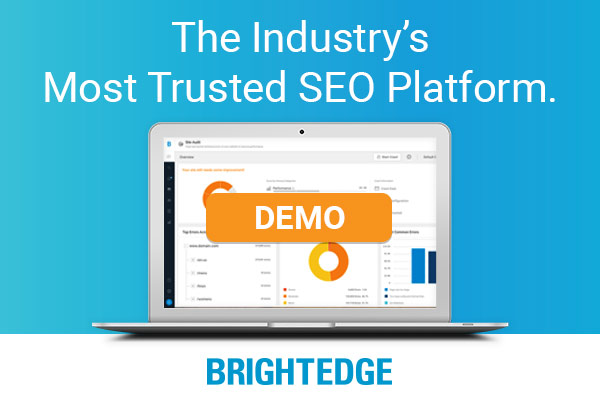SEO for social media can play a powerful role in building a brand’s online presence. Although the links from social media are typically no-follow, they can benefit brands throughout the buyer’s journey in a variety of ways. With two billion users across the various platforms worldwide, the potential for engaging prospective customers is significant.
Namely, social media platforms can help build reputation and awareness, which are key to top-of-the-funnel engagement and can help with SEO indicators. The platforms can also help brands control their appearance on the SERP for branded searches. This benefits them at the mid-funnel and end-of-funnel stages. Finally, social media drives traffic back to the company’s site, which benefits engagement and SEO metrics throughout the sales funnel.
Here is how you can use your SEO for social media strategy to build expertise in SEO and drive engagement and conversions throughout your sales funnel.
SEO for social media at the top of the funnel
Your focus at the beginning of the buyer’s journey is on building brand awareness and recognition. Customers during this phase remain most interested in educating themselves on their pain points and potential solutions. Therefore, their searches revolve around educational queries such as ‘how-to’ pieces.
Social benefits SEO through topic generation
Use SEO for social media to uncover common topics and questions people have about your industry and your product. Look for the conversations that pop up among your prospective customers and use these topics to guide some of the pieces you develop. As you create this important content, you can then promote to your prospects through social media, driving traffic and recognition for your brand.
This method of topic research also makes it easy to find emerging trends and popular topics. Creating content for these talking points will help you get out in front of the competition, which in turn will help you achieve high rankings on the SERP.
Social benefits SEO through building brand interest
You can also use SEO for social media to build a strong brand following by regularly posting and tweeting. Using the platforms often will increase the recognition your brand receives and encourages people to follow you.
Try to post to your platforms several times a day, but be aware that different platforms move at different rates. Twitter for example, requires more regular posting than LinkedIn. If this seems burdensome, there are various apps that you can load with multiple days of post that will automatically send out the tweet at the designated day and time.
You can also use WordPress plugins and tools to connect your blog to your Twitter account and automatically send a tweet whenever you publish a new blog post.
In addition to promoting new content, you can also use the platforms to regularly share your evergreen content. This can increase your positive social signals for these pieces and increase the traffic to the pages receive. High traffic and engagement rates will in turn improve your SEO for social media and SEO reports.
To build interest in your account, post about interesting trends within your industry. Stay on top of news and engage with your customers about topics of interest for them. Do not be afraid to post articles that come from other sources if you think they would provide value for your followers.
Social media is not an advertising platform, it is a water cooler where customers want to converse and find interesting information. You want to engage personally with customers and demonstrate that you have their best interests in mind. Building engagement for your account will in turn build the prospect list you can send to your site through interesting content and increase your overall authority on the web.
Actively engage with others through your account as well. Follow other companies and influencers and interact with their tweets and posts. Use popular hashtags and converse about topics that others are interested in. Use hashtags for major conferences and industry events to build your community.
As you create your posts, also remember to use images, as Facebook posts with images receive 2.3 times the amount of engagement. Customers are visually driven and tend to appreciate visual posts more than plain text.
Social media and the appearance of the SERP
At this stage of the funnel, you also do not want to neglect the important impact SEO for social media can have on the SERP itself. Know the type of queries that Google pulls posts from Twitter and YouTube onto the SERP. Optimizing content for these types of queries will increase your chances of having a tweet or video featured. This would boost your appearance as an industry expert.
Remember that Google has recently made changes to limit the number of times a particular domain appears on the SERP, so these types of universal results can offer great opportunities to build your online presence.
SEO for Social Media for the mid-funnel
When customers reach the mid-way point of the buyer’s journey, they begin to consider their options for resolving their pain points. During this stage, they tend to make more branded searches. They want to see what sets you apart from the competition and why your solution deserves their consideration.
Social media and branding on the SERP
Social media, including Twitter, can play an important role here. When prospective customers do a Google search of a major brand like Macy’s, for example, you’ll notice on the front page of the SERP, Macy’s Twitter stream pops up under the website information. This tweet carousel takes up vertical space on the results page and pushes down any potentially negative information while increasing brand visibility.
Optimizing your brand’s Twitter feed, therefore, by conscientiously tweeting about important trends and thought leadership ideas can also influence the impression you make through branded searches. Maintain a strong presence on this platform to take full advantage of this impact.
Social media and mid-funnel content topics
You can also continue to use SEO for social media to let you know what customers search for during the mid-funnel stages. Customers at this stage of the buyer’s journey often want to compare you to the competition, so look for insight about keywords people use for comparison purposes, the types of comparisons people want to see, and what the favorable reviews say about you in comparison to others in your industry. When you understand why existing customers prefer you to the competition, it becomes easier to create content that emphasizes these points.
Throughout your strategy, continue to use SEO for social media to promote content that clearly sets you apart from the crowd. Demonstrate thought leadership, promote case studies that articulate the incredible results people have seen, and otherwise help prospective customers understand what makes you different.
SEO for Social Media at the bottom of the funnel
As customers get close to conversion at the end of the buyer’s journey, use social media to emphasize the personal side of your business. Nurture personal relationships with your prospective customers. Answer their questions through the social media channels and encourage them to engage directly with the sales team.
You can also use social media to promote common bottom-of-funnel content, such as local demonstrations and coupons. Drive traffic back to your site, along with conversions, by promoting posts letting customers know the purchase bonuses available to them.
SEO for social media will empower you to drive traffic and engagement to these important deals. Increasing their visibility will boost SEO and help persuade potential customers.
Social media can be a powerful driver for organizations interested in building their SERP and marketing touches throughout the buyer’s journey. Consider how social platforms can boost engagement and optimization efforts throughout the stages of the journey and how it can be used to build leads and encourage conversions moving forward.


